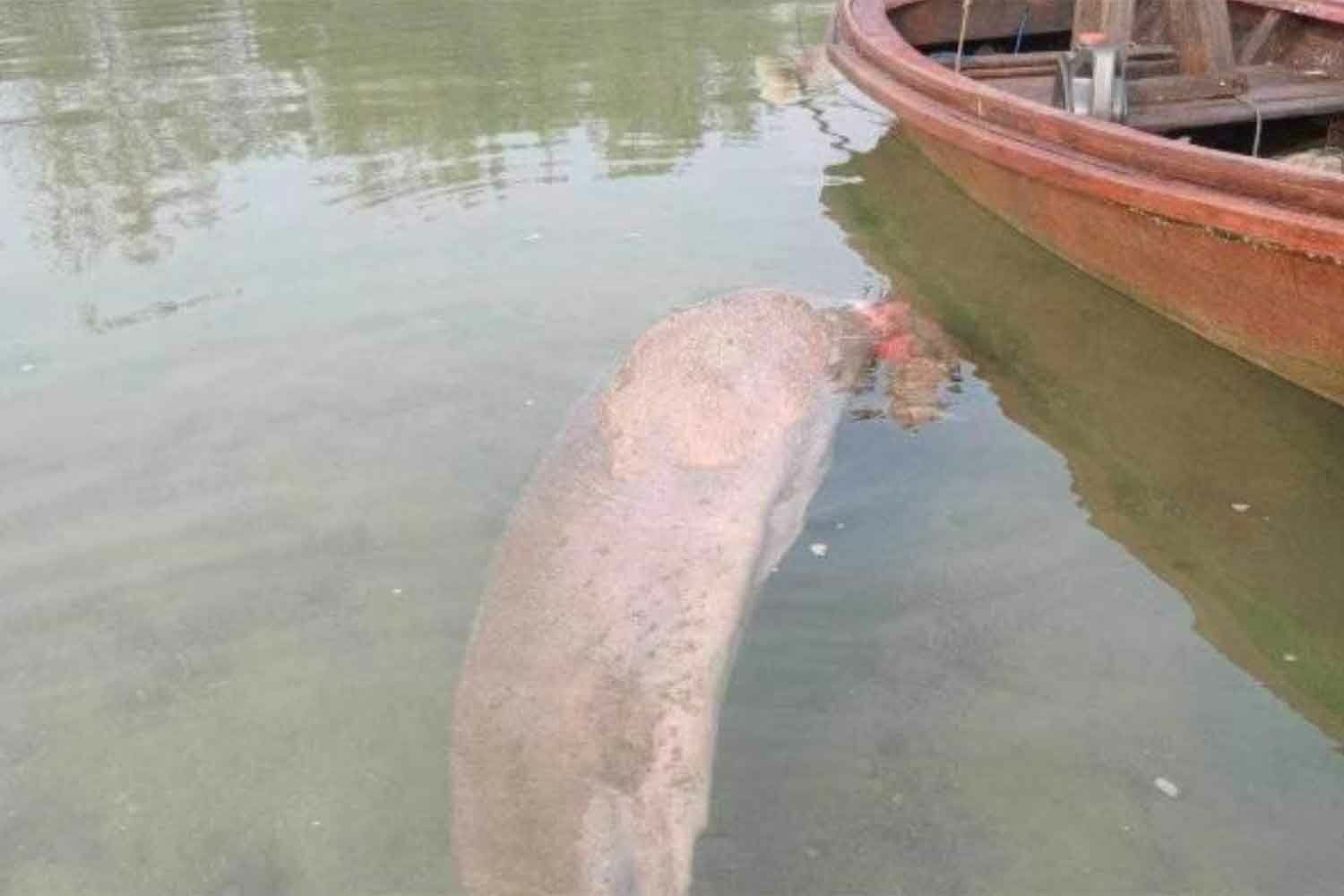Undernourished dugong spotted in Trang raises alarm for marine life

A dugong, appearing undernourished and weak, was spotted in Trang’s Koh Libong area, a well-known sanctuary for these marine creatures. The animal’s condition has generated alarm among the public and researchers, considering the diminishing seagrass around the island due to human activities and climate change.
Santi Nirawat, director of the Marine and Coastal Resources Research Centre (Lower Andaman Sea) at the Department of Marine and Coastal Resources (DMCR), explained that while the cause of the dugong’s poor health remains uncertain, the threat to marine life due to the deteriorating environmental conditions in their habitats is clear.
Seagrass problems around Koh Libong have been evident since 2019, according to Santi. The DMCR reported significant degeneration of seagrass in the area, linked to sediment discharge into the sea as part of a river deepening operation.
When local communities voiced concerns, the DMCR recommended ceasing the activity to safeguard marine life. Despite halting the sediment discharge, seagrass recovery was not observed. Instead, complaints about the declining health of seagrass in various areas increased.
Santi revealed that 70% of the 34,000 rai of seagrass in Trang’s southern province have suffered severe damage. The centre noticed a change in sediment layers, with an increase in sand over soil sediment, potentially undermining the seagrass.
Similarly, unusually high and low tide patterns, resulting in longer and shallower low tides, led to the seagrass drying out due to reduced resistance to intense sunlight. Some experts suspect that a fungus has been affecting the seagrass.
Dugong population
“Our team of marine academics and experts are working to find out the cause of the ill condition of the seagrass so we can implement measures to deal with the problem. However, all these negative factors have coincided, including the results of climate change, making the situation worse,” he said.
The centre discouraged creating a new seagrass plantation at the damaged site, suggesting the area should be left to naturally recover. The centre also requested locals to minimise man-made activities like fishing in the area.
A survey by the centre revealed only 36 dugongs around Koh Libong and nearby isles, a dramatic decrease from the 194 counted last year. It’s believed they’ve relocated to areas with more seagrass.
The department has been tracking the dugongs’ movements, expecting their new habitat to be close to Koh Libong due to their dependency on seagrass sites. The waters around Krabi and Satun could potentially be their new home.
According to the DMCR, Trang, Krabi, and Satun are Thailand’s most crucial seagrass sites, accounting for about 70% of the estimated 100,000 rai of total seagrass in the country. However, the dugong population is relatively small, approximately 200 nationwide. The decline of seagrass, their only food source, raises serious questions about preventing their extinction.
Petch Manopawitr, a conservation scientist and DMCR adviser, said the declining health of seagrass is a significant indicator to the global community that we are nearing a tipping point in climate change. Sea current anomalies have severely impacted marine life.
“We may not be able to see the recovery of seagrass in the future. Climate change isn’t a distant concern; it’s causing immediate and profound alterations to marine ecosystems. The loss of seagrass and dugongs is an important piece of the climate change jigsaw,” he said.
Petch also warned about the potential for massive coral reef bleaching, which could cause damages similar to the widespread coral reef bleaching in 2010 that destroyed over 90% of the coral reef in Mu Koh Surin National Park in Phangnga province, reported Bangkok Post.
Romtham Khumnurak, a Democrat Party representative from Phatthalung, called on the government to take more decisive action against climate change. He argued that the seagrass loss issue should be a national agenda, involving all stakeholders, as it affects people’s living conditions.
Latest Thailand News
Follow The Thaiger on Google News:


























